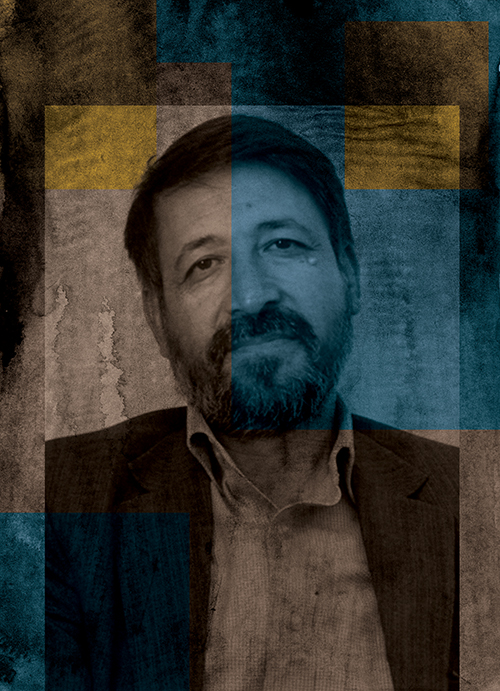Aziz Rafiee was born in Kabul and obtained his Master of Engineering degree from Kabul University. He switched from the technical field to social issues in the 1990s and began working with civil institutions, in particular human rights groups and human rights defenders, concentrating on victims.
Can you share with us some memories of times when your rights have been violated and how it has influenced your life?
When I first started working in a semi-governmental organisation operating between the private sector and the state, I noticed that my educational background was not recognised. Despite my higher levels of education, I was working under a superior who had half of my level of education but much stronger relationships in the political sphere.
I lost my wife during the civil wars and my son became disabled. I was injured during the fighting between the groups in Kabul and all of my family’s possessions were looted, including a number of volumes of manuscripts of my book which I had been working on for several years.
What are the most important achievements of the new era in Afghanistan?
Freedom of expression as we are now experiencing it in Afghanistan is at an unprecedented level; we have never experienced this, not even during the ‘decade of democracy’. Many taboos are being uncovered, for instance, about political groupings in Afghanistan and systems of governance. Other achievements are that Afghanistan has become a partner of the international community, and there is a level of citizenship accountability in the country.
What gives you hope for the future?
The newly established democratic environment has created space for tolerance and peaceful coexistence. Seeing previous enemies standing together sends a strong message.
What is your worst fear today?
We have not yet diagnosed the pathology of the problems that infect Afghanistan. Quite serious and fundamental issues, such as questions of national unity and identity, the basic principles of our society, have not been discussed. My great fear is that we may not even confront these issues. Without going deeper, we might find that the present environment of tolerance is only superficial, which could have very dangerous consequences.
What are the biggest challenges facing Afghanistan?
The biggest challenge in Afghanistan is the expansion of the culture of impunity. This exists only for the rulers, the strongmen and the Mafia. Laws are not equally implemented – they apply to the vulnerable but not to the strong men who are breaking them. When the son of a minister kills someone, he does not go to prison, not even for a day. Yet another person accused of murder spends five years in prison without even having a trial.
There is a serious crisis of trust in society and the government of Afghanistan is to blame for it. War and internal miseries do create massive crises that seep into the culture of a country.
Is it possible that girls could once again be banned from schools and women excluded from social participation, as was the case under the Taliban rule?
It is not possible to live in the age of information technology and knowledge, and have the schools closed.
Which factors deter women from participating in social, economic, political and cultural spheres?
The most important factor is the conservatism that prevails with respect to social issues. Lack of education and economic poverty are other factors. Women are consistently used as a means of labour in families.
What do you wish for your daughter?
My eldest daughter is in her fourth year at university studying economics. I wish that she will be self-dependent, that she will not have to look to her family or her husband for her daily expenses and be able to earn a decent living through her own work. My second wish is that she will have the knowledge and the ability to comprehend the social and cultural issues she faces.
What have you done in your personal and professional life to fight against discrimination?
During the past 25 years, I have engaged extensively in activities to raise awareness about human rights issues.
“Unveiling Afghanistan, the Unheard Voices of Progress” is a campaign by Armanshahr and FIDH, which explores views held by Afghan civil society actors. Over 50 days, 50 influential social, political, and cultural actors hope to spark conversation and debate about building a society that is inclusive of women’s and human rights in Afghanistan.
Follow 50 interviews drawn from the “Unveiling Afghanistan campaign” daily on the Huffington Post. Follow Unveiling Afghanistan on FIDH Twitter: www.twitter.com/fidh_en


